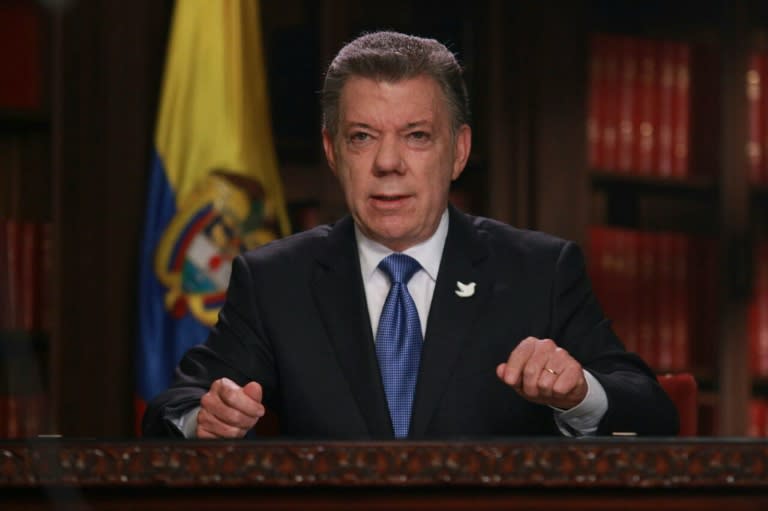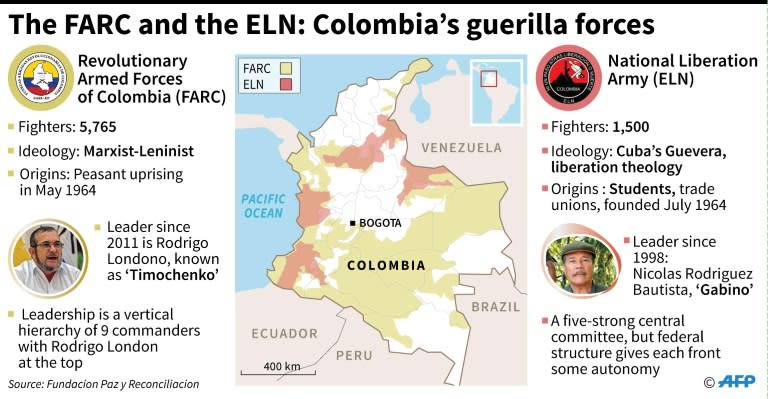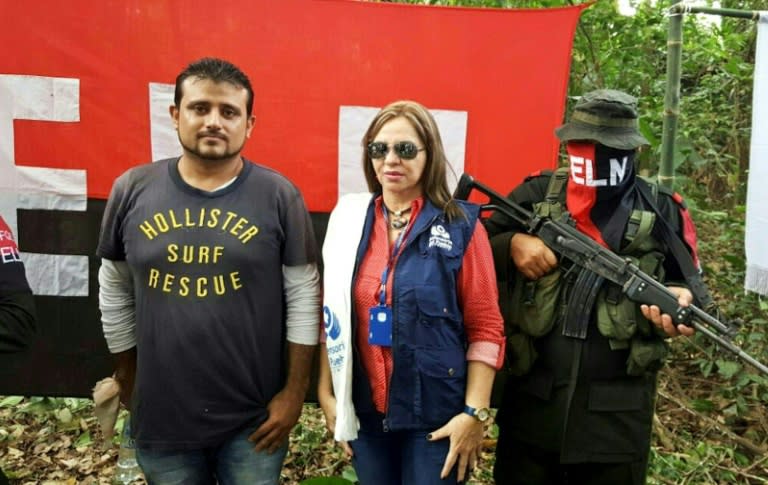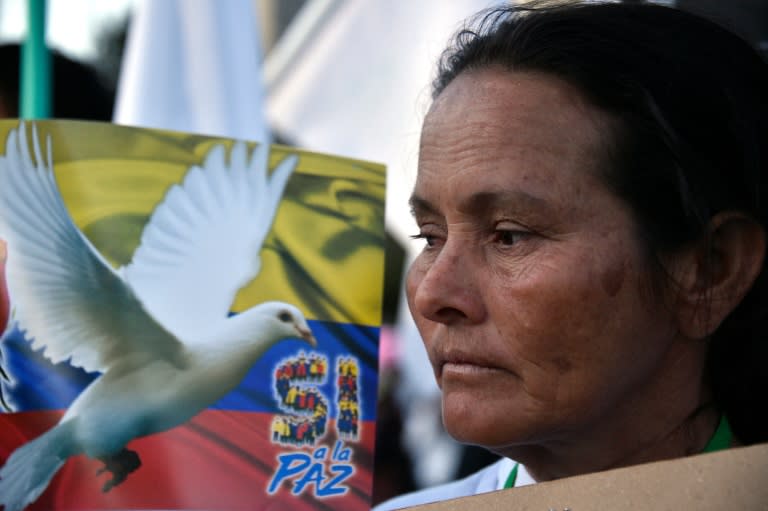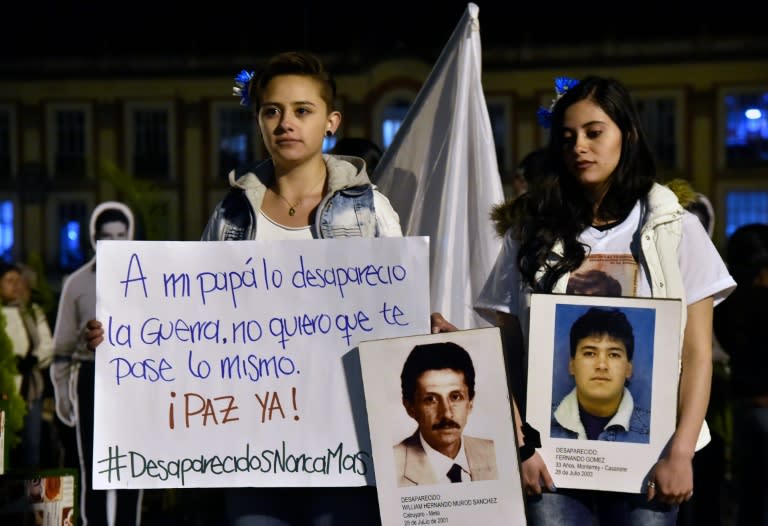Colombia postpones ELN talks over hostage dispute
Colombian President Juan Manuel Santos postponed peace talks with the ELN rebels just hours before they were due to open, insisting they first release an ex-lawmaker being held hostage. Santos said he remained committed to making peace but would not budge from his demand for the ELN to first free former congressman Odin Sanchez "safe and sound." The government's top peace negotiator, Juan Camilo Restrepo, later said an operation was under way for the leftist guerrillas to hand Sanchez over to the Red Cross. But it was not immediately clear how long it would take. Restrepo said he believed the handover would be complete by November 3, when the first round of substantive negotiations had been scheduled to begin. "I reiterate all the government's readiness and willingness to advance with this process," Santos said in a speech. The talks had been due to formally open at 5:00 pm (2200 GMT) in Ecuador. Interior Minister Juan Fernando Cristo said the government was prepared to reschedule to Friday, Saturday "or whenever we are certain that Odin Sanchez has been freed." The rebels said on Twitter they "do not share" the decision to postpone. Hours after the government suspended talks ELN rebels killed two truck drivers in the country's northeast in a "terrorist act", the military said. "It is simply an act of terrorism against two civilian trucks traveling on the roads of Arauca, which were set on fire and the drivers killed by members of the ELN," Colonel Miguel Angel Rodriguez told AFP, referring to the region where the incident took place. The National Liberation Army (ELN) is the country's second-largest rebel group after the Revolutionary Armed Forces of Colombia (FARC), which has been in talks with the government for nearly four years. The ELN talks were meant to open a new, decisive front in Santos's efforts to end an armed conflict that has lasted more than half a century and killed more than 260,000 people. Santos, who won this year's Nobel Peace Prize, has already signed a peace deal with the FARC, but voters rejected it in a referendum this month -- sending negotiators back to the drawing board. And the ELN talks are shaping up to be even trickier. - Hostage dispute - The ELN had promised to free its hostages before the talks -- as the FARC did before starting negotiations with Bogota in 2012. But it bristled last week when Restrepo gave it an ultimatum to free Sanchez, accusing him of "torpedoing" the talks. Sanchez voluntarily went into ELN custody in April to take the place of his brother Patrocinio, a former governor who had fallen ill after three years in captivity. He is being held in the remote, jungle-covered department of Choco. Sources in the Catholic Church, which has played a part in preliminary negotiations, say the rebels are also holding a doctor named Edgar Torres. - Down to the wire - The talks would be the fifth attempt to make peace with the ELN over the years. The ELN says its negotiating team is already in Quito and ready to begin talks. Their head negotiator, Pablo Beltran, tweeted that they are "fulfilling everything that was agreed." Like the FARC, the ELN formed in 1964 and is blamed for killings and kidnappings during a many-sided civil war. Both groups have relied on ransom kidnappings and drug trafficking to fund themselves. Analyst Camilo Echandia of Colombia's Externado University said the ELN was reluctant to accept the release of hostages as a condition for talks. "That is the big difference between the ELN and the FARC," he told AFP. "These negotiations are going to be very complicated." - Ongoing violence - Incidents involving ELN forces have kept tensions high in recent months. The Colombian army blamed the ELN for a non-fatal explosion at an oil pipeline near the Venezuelan border on Sunday. Colombian authorities estimate the ELN currently has some 1,500 members, active mainly in the north and west of the country. Colombia's territorial and ideological conflict has drawn in various guerrilla and paramilitary groups, drug gangs and state forces over the decades. The conflict has forced nearly seven million people to flee their homes, according to authorities.

